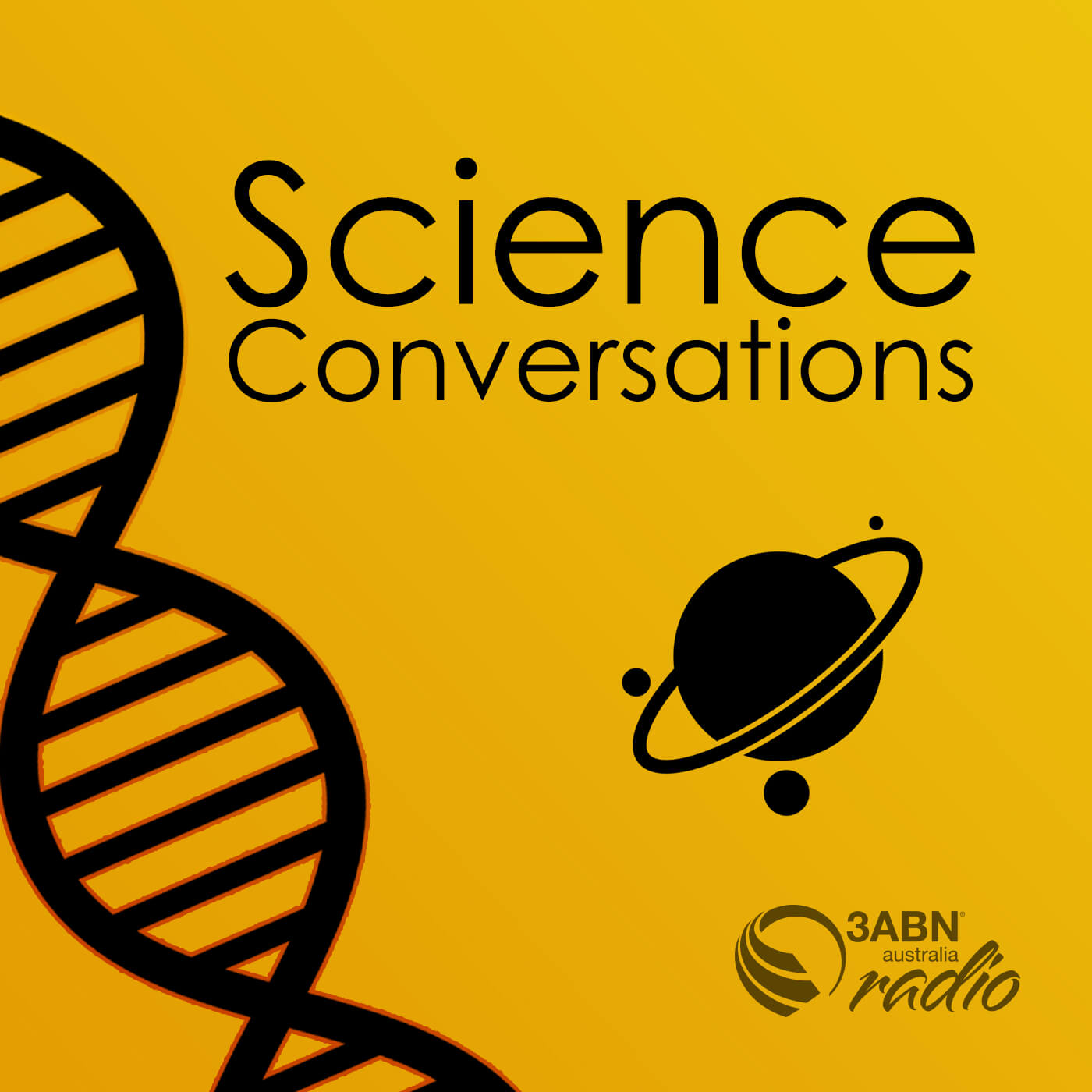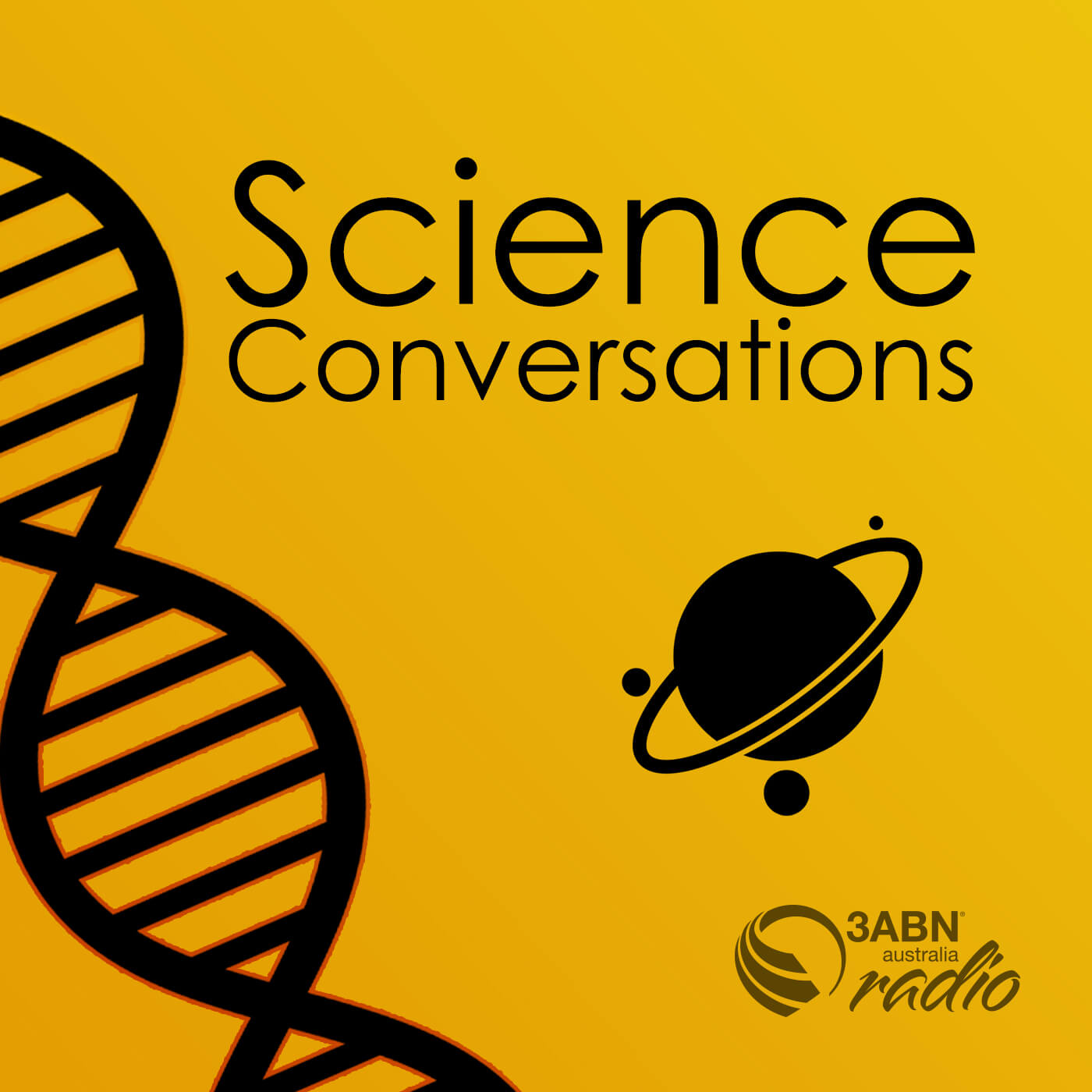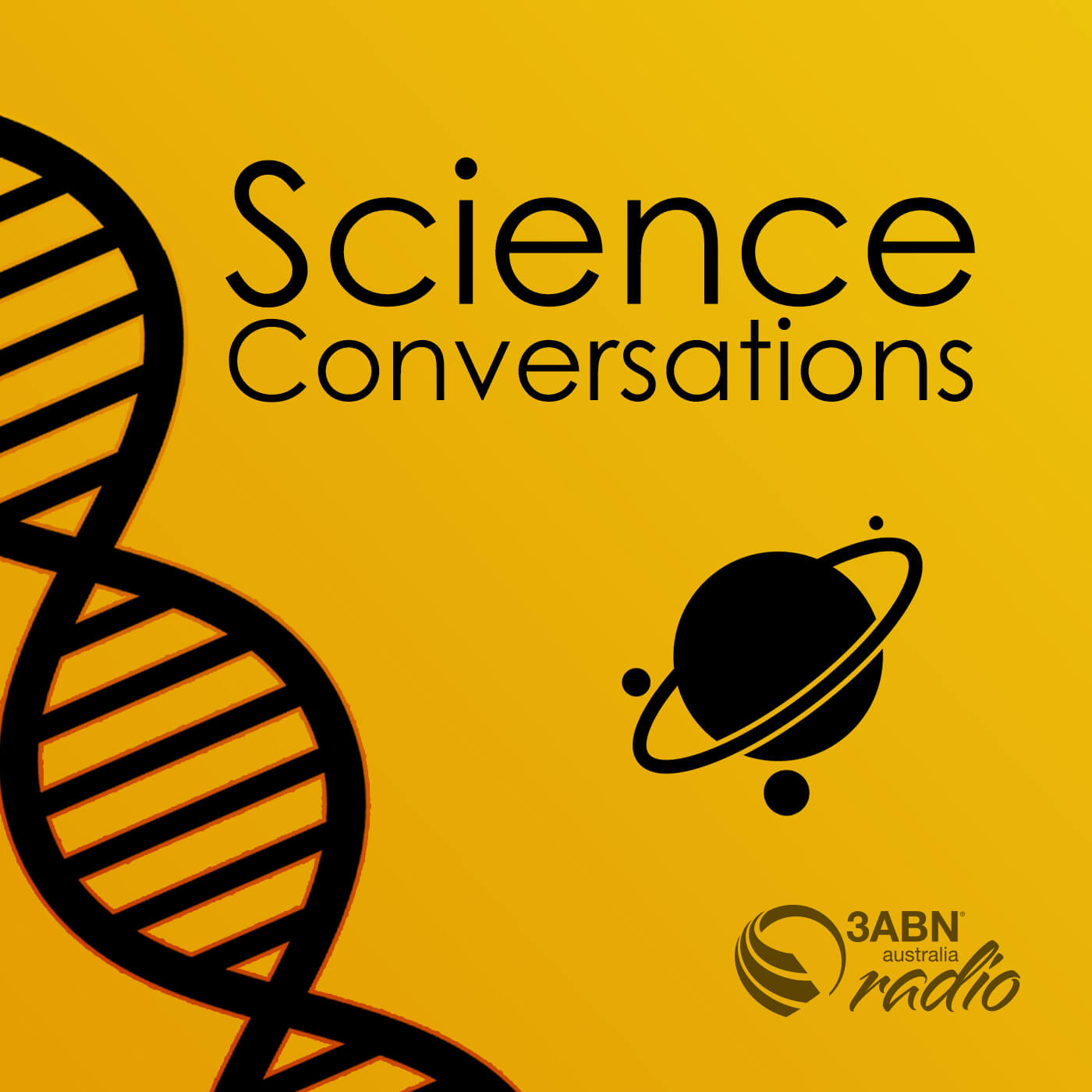Episode Transcript
SPEAKER 1
Welcome to Science Conversations. I'm Kaysie Vokurka. Can new organisms form from random mutations? That's our topic for today. Joining me to discuss this is Dr. John Ashton. Welcome to the program. Dr. John.
SPEAKER 2
Hello, Kaysie.
SPEAKER 1
Yeah. Now, Dr. John has written a book entitled Evolution Impossible 12 Reasons why Evolution Cannot Explain the Origin of Life on Earth. And we are examining chapter four. So in our last discussion, we were talking about the different types of evolution and you mentioned something which Richard Dawkins also writes in his book the Greatest show on Earth, Evidence for evolution. And he was citing evidence for type 3 evolution and he talked about some experiments by Lenski. Can you tell us more about those experiments and what they showed?
SPEAKER 2
Yes. Okay. So in his book, Dawkins claims that there's an example of evolution where new code was being formed, which is the only example I could find anyway in his book of an example where we're observing new code form because this underpins Darwin's evolution. For evolution to occur, we've got to have mutations that producing new meaningful code. And so he actually referred. This example referred to work by Dr. Richard Lensky at Michigan State University in the United States. And Dr. Lensky had had a team working on this to try and actually observe evidence of evolution. And so what they did was they took E. Coli bacteria, which are very common bacteria, and the reproduce about every 30 minutes in the laboratory under ideal conditions, and they split these up into three, into 12 groups and they set them up in a citrate buffer. So this is a chemical that kept the ph normal, and then they fed them glucose and other nutrients. Now they had selected E. Coli bacteria that couldn't use citrate as a metabolised citrate as a food so that they could use citrate as a buffer in this experiment. Now they conducted and fed these bacteria and studied them over thousands of generations. I think they went through about 44,000 generations. So this experiment went on for decades and sort of billions of mutations would have been produced during that time. Now, when the original paper was published by Alinsky, I think it was in 2008. That was about the time of Dawkins book, or a bit before, so Dawkins could refer to it. What had happened then was in one of the groups of 12 bacteria, some of the bacteria have begun using citrate as a food. And so Dawkins really jumps on this. See, this was evolution, a new mechanism. The bacteria we're using now citrate as a food. Now the fascinating thing is that E. Coli bacteria in the Wild can use citrate as a food.
SPEAKER 1
Right.
SPEAKER 2
So the gene was there. It just so happened that in these 12 groups of bacteria, they'd selected four E. Coli bacteria where the transporter gene had been switched off. And it turned out with later investigations that there had been a, a mutation that had occurred. A very, very simple mutation had moved a piece of switching mechanism next to the dormant transporter gene that now switched it on, which now enabled citrate to be used as food. So it was a very simple change. And so these bacteria were now able to use citrate. So again, it emphasizes this was using pre existing code that was there. It was a pre existing mechanism that had already been set up. It wasn't a new type of body part or a really new biochemical system. The important thing to note though, and I believe now they're up to about 60,000 generations, is that during this time the E. Coli remained an E. Coli bacteria. It didn't evolve into a different type of bacteria. It never evolved a nucleus, for example, to move on to a higher order of animal like yeast or something like that. And so here we have, it just remained E. Coli through all these, even though it underwent billions of mutations. Now there's about 4.6 million base pairs in the DNA code. So there's potential to alter every particular base pair in that code during this time with those child. And yet no new species formed. So here, contrary to what the claim is, we have an experiment that has been done that's gone through, as I said when the original paper was published, 44,000 generations that showed there was no change. And this is in a little bacteria that has a fairly simple code. If you want to change something to make some new biochemical system or set up some new pathway, or evolve it into a new organism. So in my mind, in my view, this is powerful evidence that evolution hasn't ever occurred. Cause, you know, when we look at the gestation period of a lot of animals and so forth that are many months, sometimes, you know, years or at least weeks once, to go through, you know, millions of, you know, to go through all the generations required to produce mutations, it's gonna be such a long time. Well, there's just not enough time. Plus the fact that in this time we haven't actually observed that happening with an experiment that is done to look at that. So we've gone through, As I said, 60,000 generations and I understand they're still E. Coli bacteria. They haven't evolved into anything else.
SPEAKER 1
So really, based on what we talked about, in the last program on the different types of evolution, this was not an example of type 3 evolution. Is that right? This.
SPEAKER 2
No, definitely wasn't.
SPEAKER 1
This is a type one type thing, isn't it?
SPEAKER 2
Yes.
SPEAKER 1
Within the existing DNA. Like it hasn't even got a new bacteria throwing a bit in.
SPEAKER 2
That's right, yes. Yes. So it's a classic example of what's the type of bacteria that we see written up in textbooks. But what it means is that a lot of these scholars, a lot of these authors really don't understand, it seems, the mechanisms required to produce new body parts. And as I said, it's very interesting. Scientists like Dr. Lee Spetner, who was a biophysicist, taught at Harvard and John Hopkins, in his book not by Chance, he points out that statistically it's absolutely impossible for new meaningful code to point to form. And secondly, he's never seen any research papers purporting that. And similarly, I myself have to date not seen any research papers that have actually purported to show new, meaningful code for a new body part arising by chance. In fact, the University of California, Berkeley, on their website, with regard to teaching evolution, they point out that this, this is one of the major challenges for biologists and evolution theory is to understand what is a mechanism that could produce a new body part. And to date, no one has come up with a mechanism that can produce the code for a new meaningful body part, because we know that mutations won't do it. As I've referred to previously, living organisms have mechanisms in place to preserve the integrity of the DNA, not to produce some new type of organism. And it's fascinating, even with where we have sexual reproduction species, where you have an egg and a sperm, that we need to understand that the egg, for example, will have special proteins on its surface that will only interlock with specific proteins on the sperm. And that's why, again, we preserve. Now, if any hybrid species do somehow form with animals that are fairly close, they usually abort or they are infertile. And so this way we preserve these major or stop any major transformations from happening and preserve the species. And the same occurs with pollen when it's blowing through the air and lands on the sigma of the female flower. Again, there's all these different types of pollen around, but this, any mutations to form some sort of new plant are forbidden by the fact that we have these specific molecules on the pollen versus the female parts. And so again, we have all these mechanisms in place that prevent major mutations occurring.
SPEAKER 1
So just in terms of having the understanding of the Biology. If you were in the cell system, we were to have new genetic code being formed, would that only occur when that cell is replicating, or could it occur just in the ordinary operations? Like when would we expect new code to actually be able to form?
SPEAKER 2
Okay, so new code could form. So as the parent is carrying code in its gamete cells, those gamete cells can be damaged by chemicals or they can be damaged by radiation in the environment. So those gamete cells, then when they combine the male and female gamete cells, if there's a mutation in one of those gamete cells, there's a potential to pass that onto the offspring. Sometimes just damage does occur, and we get mutations occurring just through the actual processes within the cell itself. Incomplete molecular. So all these transformations rely on chemic. So some of the chemical reactions due to different conditions may not go to completion, and that can form a mutation. And this is why most of the mutations are deleterious to the organism. And we also have the understanding that, for example, we're accumulating mutations. This is known as genetic entropy. This is another thing that's been observed. So we are carrying more mutations, for example, in our mitochondria, DNA, than our parents. And so this is, again, powerful evidence that life on Earth cannot be very old because otherwise we would have accumulated too many mutations to be viable and able to reproduce. So this is another thing. What we are observing in nature is the accumulation of deleterious mutations. We're not observing new mutations producing new beneficial advantages. As I said, Dawkins refers, say, to the odd occasional one that we see. For example, the women that there was a mutation and they developed HIV immunity. Again, though, that was through the loss of code, not new code forming.
SPEAKER 1
Yeah, so that's really a key thing that we haven't seen the new code forming, which is absolutely.
SPEAKER 2
And this is what underpins the theory of evolution for evolution to occur. Darwin's theory was that mutations would produce new organisms. Mutations are caused by changes in the DNA. The DNA is a chemical. It's a giant chemical molecule. Any changes that occur occurred by chemical interactions that rearrange the order of the bases, which are smaller chemical components. In that code that we call the letters of the code, we represent by A, C, T and G. And that is a code that orders the assembly of the proteins to build the new organism. So any changes to that code will change the assembly of the proteins. But again, we have to have changes in that code that will actually produce something that works and meaningful. And the code is extremely complex. Scientists can't write new code to make something new happen. A scientist can't write a new code for a pig to grow wings, for example, and fly. And one of the fascinating things is that the new code that codes in one organism, the same piece of code in a different organism may have a different function. And this is one of the fascinating things that we're learning about with the so called what we thought were junk DNA we actually find no, these are special codes that switch parts of the DNA, parts of genes and so forth on and off and are highly involved and highly complex. So the overwhelming evidence that we observe now today in science is that nobody has ever observed new codes forming which evolution requires. And so we have scientific evidence that evolution is absolutely impossible.
SPEAKER 1
Fascinating things to consider in light of this question. So thank you for sharing again and we'll be back for the last part here on this topic. Next time we're going to continue to examine the question can new organisms form from random mutations? Be sure to join us.


